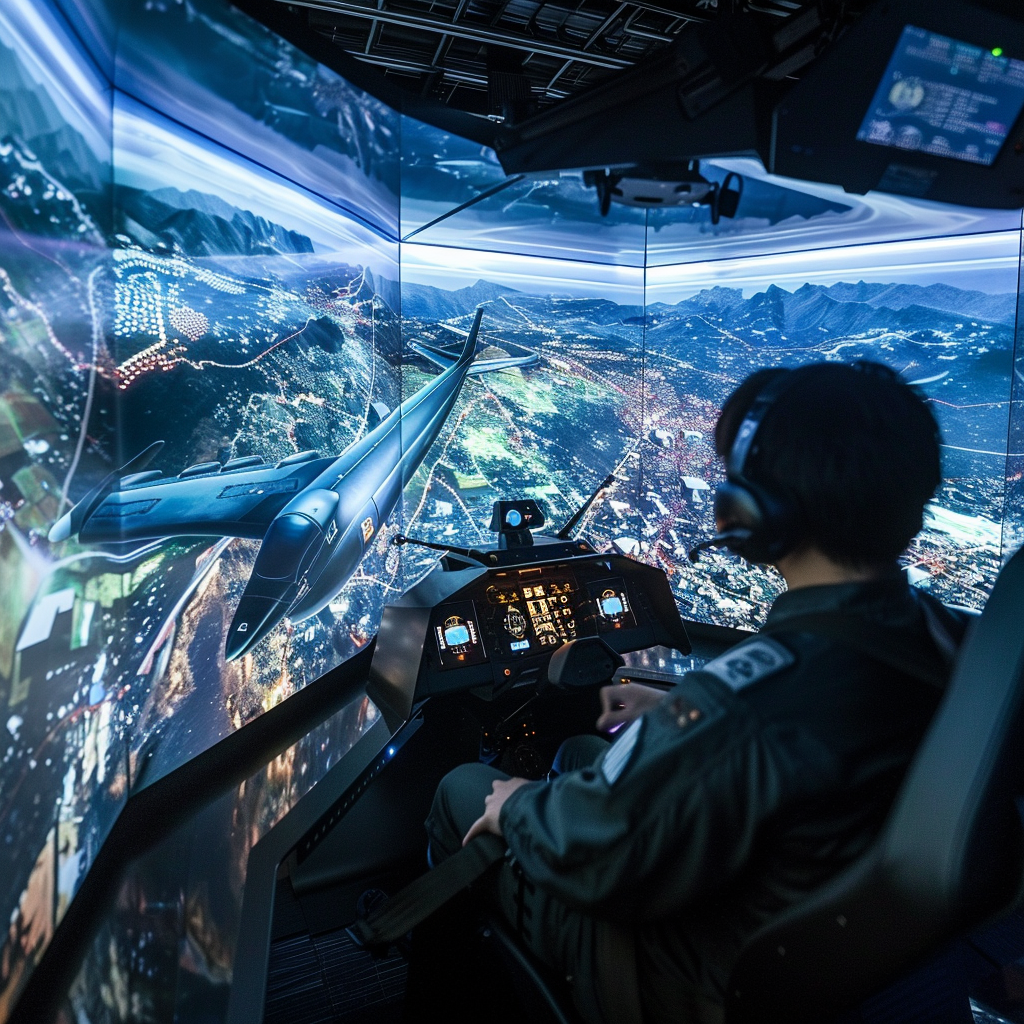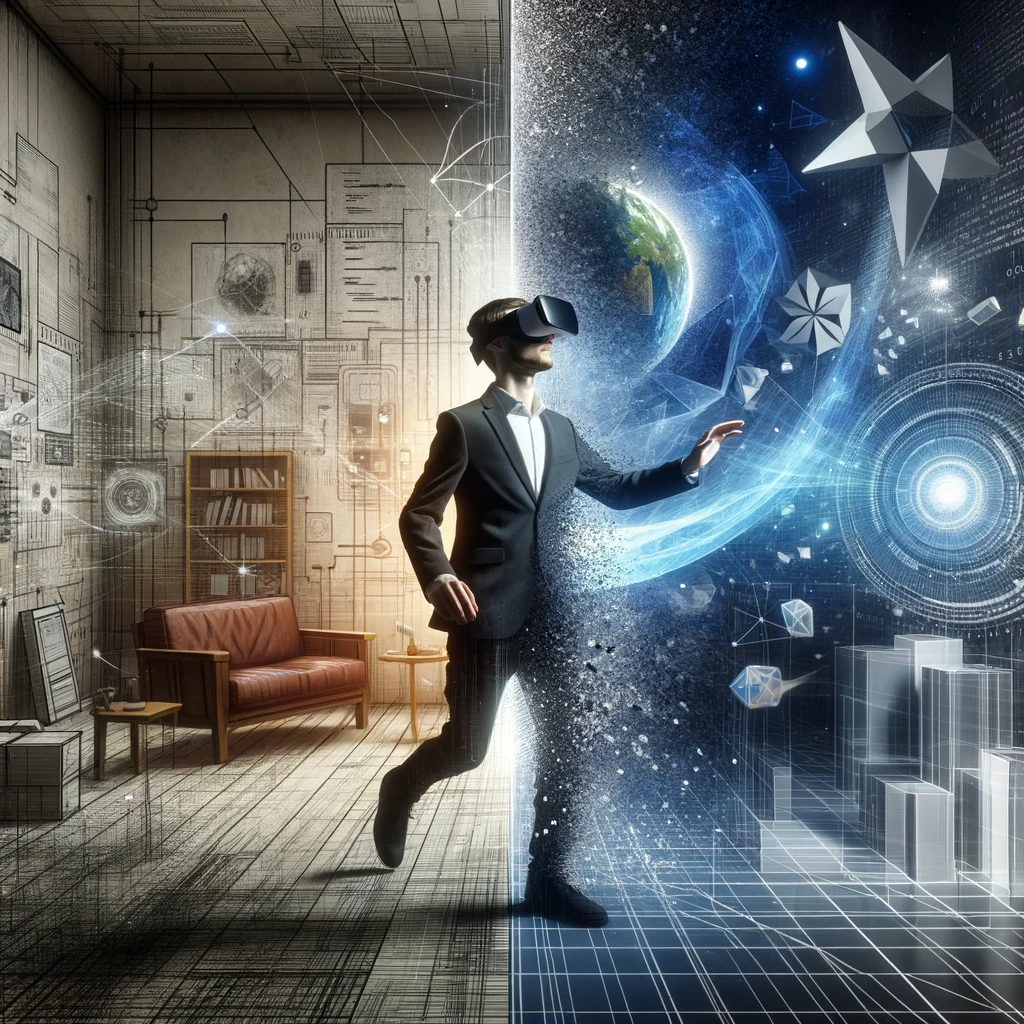Simulation
Definition
Simulation refers to the imitation or re-creation of a real-world process, system, or scenario in a controlled environment to study its behavior, outcomes, or to train individuals.
Parts of Speech
- Noun
Pronunciation
American English
- IPA Pronunciation: /ˌsɪmjʊˈleɪʃən/
- Respelling: SIM-yuh-LAY-shuhn (with "SIM" as in "simple," "yuh" as a quick, soft sound like the 'u' in "cup," "LAY" as in "lay," and "shuhn" as in "cushion")
British English
- IPA Pronunciation: /ˌsɪmjʊˈleɪʃən/
- Respelling: SIM-yuh-LAY-shuhn (similar to American English, with "SIM" as in "simple," "yuh" slightly rounded as in "put," "LAY" like in "lay," and "shuhn" as in "cushion")
In both dialects, "simulation" is pronounced with the primary stress on the third syllable, "LAY." The pronunciation is consistent across both American and British English, accurately reflecting the word's structure and stress pattern.
Etymology
The term "simulation" is derived from the Latin word "simulare," meaning to copy or imitate, which is also the root for the verb "simulate." It came into use in the English language in the 14th century.
Derivatives
- Simulator
- Simulative
- Simulacrum
- Simulant
- Simulated
Synonyms
- Emulation
- Modeling
- Replication
Antonyms
- Reality
- Authenticity
- Originality
Usage
"Simulation" is a term frequently used across various fields such as science, engineering, aviation, medicine, and even gaming. It refers to the process of creating a model of a real-world system or scenario in a controlled environment for the purpose of study, analysis, training, or entertainment.
Related Terms
- Virtual Reality
- Augmented Reality
- Computational Modeling
Detailed Definition
Noun
- Technical Modeling: The act of creating a virtual or physical model to represent a real-world process, system, or scenario, to analyze its behavior under different conditions.
- Example: Through simulation, engineers can predict how a structure will withstand various stresses and strains.
- Training: A controlled scenario where individuals or teams can practice responses, strategies, or behaviors in a safe and replicable environment.
- Example: Flight simulation allows pilots to practice dealing with emergency situations without any real-world risk.
- Entertainment: In video games and virtual environments, simulations provide a realistic or fantastical depiction of certain scenarios or worlds.
- Example: The video game provides a detailed simulation of a post-apocalyptic world.
simulation



🇨🇳 Mandarin (Simplified Chinese)
- 模拟 (mónǐ) - Imitation, mimicry
- IPA Pronunciation: /mo˧˥ ni˨˩˦/
- Respelling in English: mo-NEE
🇮🇳 Hindi
- अनुकरण (anukaraṇ) - Imitation, mimicry
- IPA Pronunciation: /əˈnʊ.kə.ɾəɳ/
- Respelling in English: anu-KAR-an
🇪🇸 Spanish
- simulación
- IPA Pronunciation: /simulaˈθjon/
- Respelling in English: sim-oo-la-THYON
🇫🇷 French
- simulation
- IPA Pronunciation: /simylasjɔ̃/
- Respelling in English: see-moo-lah-SYON
🇸🇦 Modern Standard Arabic
- محاكاة (muḥākāh) - Imitation, mimicry
- IPA Pronunciation: /muːˈħaːkaː/
- Respelling in English: moo-HAA-kaa
🇧🇩 Bengali
- অনুকরণ (ônukôrôn) - Imitation, mimicry
- IPA Pronunciation: /ɔnukɔɾɔn/
- Respelling in English: o-nu-KO-ron
🇷🇺 Russian
- моделирование (modelirovanie) - Modeling, simulation
- IPA Pronunciation: /mədʲɪlʲɪˈrovanʲɪje/
- Respelling in English: mo-dee-lee-RO-va-nee-ye
🇵🇹 Portuguese
- simulação
- IPA Pronunciation: /sĩmuˈlɐsɐ̃w̃/
- Respelling in English: sim-oo-LA-saoun
🇮🇩 Indonesian
- simulasi
- IPA Pronunciation: /simʊˈlasi/
- Respelling in English: sim-oo-LAH-see
🇩🇪 German
- Simulation
- IPA Pronunciation: /zɪmuˈlaːtsi̯oːn/
- Respelling in English: zim-oo-LAH-tsee-ohn
🇯🇵 Japanese
- シミュレーション (shimyurēshon) - Simulation
- IPA Pronunciation: /ɕimjɯɾeːɕoɴ/
- Respelling in English: shee-MYOO-ray-shon
🇻🇳 Vietnamese
- mô phỏng
- IPA Pronunciation: /mɔ˧˥ fɔŋ˧˥/
- Respelling in English: mo FONG
🇰🇷 Korean
- 시뮬레이션 (simyulleisyeon) - Simulation
- IPA Pronunciation: /ɕimjulleiʃʌn/
- Respelling in English: shee-MYUL-lay-shun
🇹🇷 Turkish
- simulasyon
- IPA Pronunciation: /simulɑːˈsjon/
- Respelling in English: sim-oo-lah-SYOHN
🇵🇰 Urdu
- مظاہرہ (mazāhirā) - Demonstration, representation
- IPA Pronunciation: /mʊˈzɑː.hɪ.rɑː/
- Respelling in English: mu-ZAA-hi-raa





